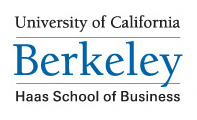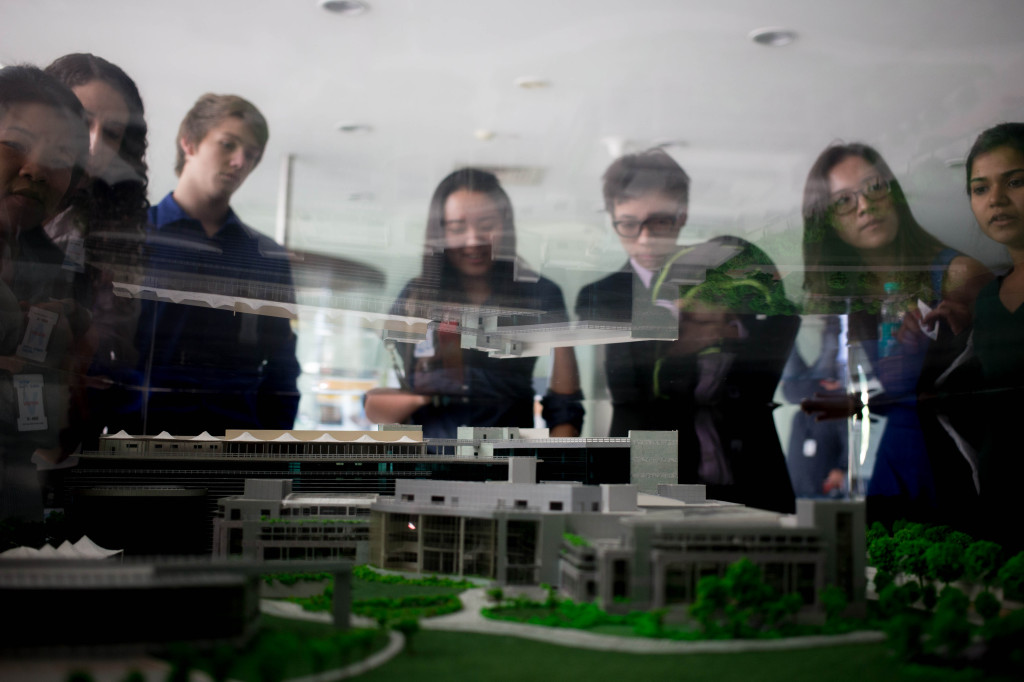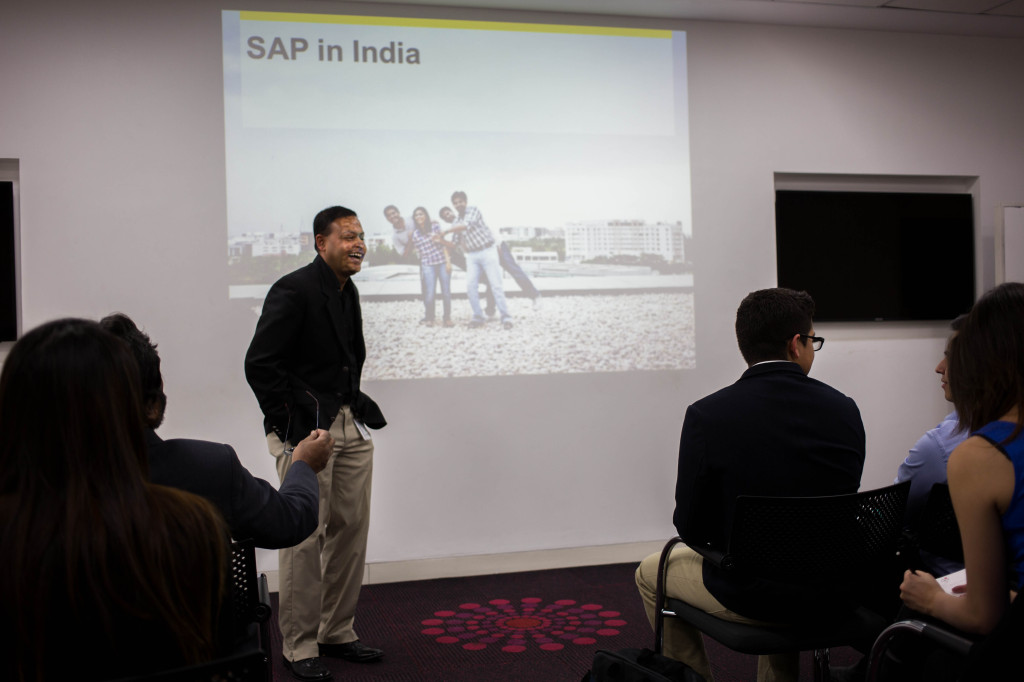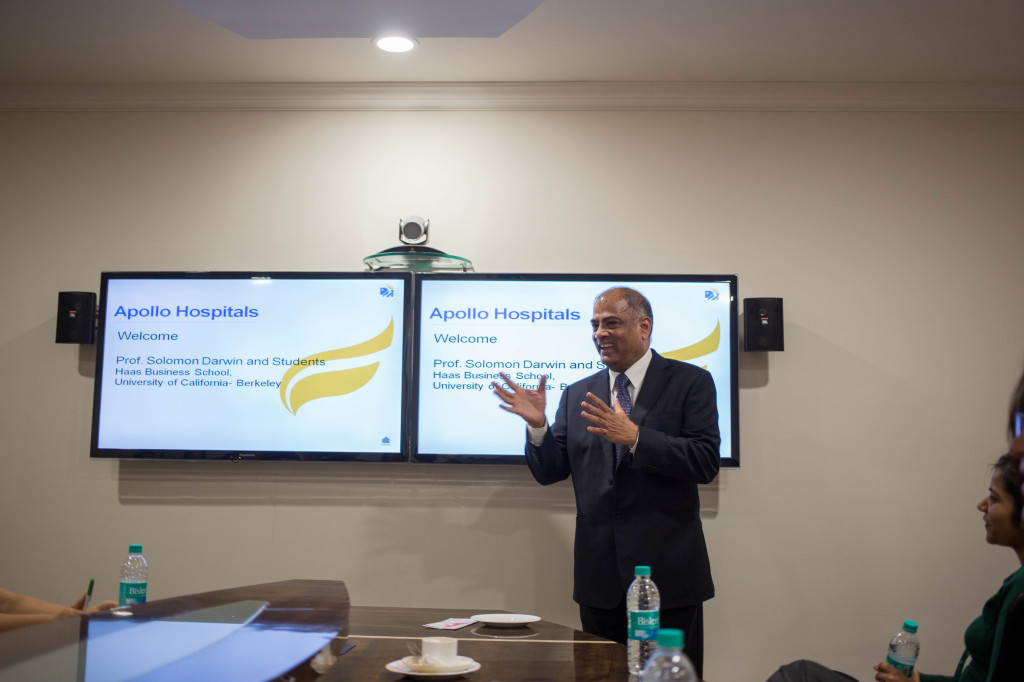The Haas students visited the SAP’s Research and Development Center, and Apollo’s Main Hospital in Bangalore today.
They were warmly welcomed at the SAP Labs. Haas Alum and Managing Director of SAP Labs India, Anirban (Andy) Dey, gave the Haas group a well-rounded introduction to what SAP does exactly, a brief history of the company’s past innovations, and their current innovative products and services for India and the global market today.
Since SAP is a German company, Mr. Dey spoke of the difference between the German and American ways of innovation. He also gave the students a bit of an overview of SAP’s general business statistics, as well as their innovations in Hana, the types of people they hire and why, a program to create a healthy and productive workspace for employees, and a pilot program to have someone on the customer end of the transactions working with SAP to create a better product, because ultimately, it’s the customer that’s going to be using and utilizing the product to the fullest. Another thing he talked about was SAP’s method for innovating a product and the process that goes into it. For a product to sell, it has to be feasible, viable, and desirable. The Haas students were very impressed with the knowledge and dedication that went into the company, as well as the yearning for great innovations and customer service.
Andy then introduced the Vice President and Initiative Lead, Abhijit De, for another lecture. Mr. De spoke briefly about his personal history: his childhood in Uganda, his travels around the world, and what he does currently as an executive at SAP. He then gave the students a summary of one of SAP’s biggest innovations yet: Ganges. Ganges is a piece of software that consolidates everything into an integrated network. This allows the business that uses it to see updates in real time on advertising and whether or not a certain advertisement is working better than others. To strengthen this point, he showed a video explaining one small business’ experience with this product and the features that it helps that business with. He did mention that there are technical challenges with the electricity, internet, general technology, and infrastructure India faces daily.
When the Haas group arrived at the Apollo Hospitals Bangalore site, the kitchen staff surprised them with a few refreshments before the executives at Apollo split the students into three groups and took them on tours of the hospital, showing all the different technologies that Apollo uses in their top-notch facilities.
After all three groups finished touring the immediate facilities, the CEO of Apollo Hospitals, Dr. Umapathy Panyala, gave a wonderful and interesting lecture on the cost of healthcare in India vs. other western countries, the close connection they have with technological and software companies like Philips, the uses of telemedicine and it’s developments, improvements, and innovations at Apollo Hospitals. He also talked about Apollo’s new focus on India’s more rural, undeveloped and low margin societies because there is a greater need for higher healthcare, seeing as millions of people get little to no healthcare whatsoever. Dr. Panyala also informed the Haas group of IBM’s Watson and how that exponentially reduce the margin of error for doctors, and a new mobile health program, connecting all the mobile phones in India to healthcare websites.



